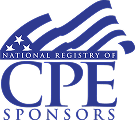2025 Workforce Trends: Understanding Independent Contractors vs Employees

About this Webinar
About Webinar
Employee vs. Independent Contractor is a significant aspect of employment law. Before former President (and now President-elect) Donald Trump left office in 2020, his administration passed a rule, somewhat narrowing the definition of who and what is an independent contractor – and then the Biden Administration withdrew that rule, rolling things back to the confusing place they were under the Obama Administration.
But then, due to a legal challenge the Trump Rule was reinstated – and then under the “Biden Administration”, the US Department of Labor implemented a “new” rule that took effect on March 11. That rule itself is the subject of legal challenges. If that’s not enough, with President Trump returning to the White House in January, his administration may roll back that rule. Are you dizzy yet? In this webinar, we will sort that out and how, in the interim, you can determine if your worker(s) is/are independent contractors or employees.
Many employers believe that if their employees agree to certain pay arrangements, or agree to be classified as independent contractors, then there is no violation of the law. This is not the case. Employees cannot agree to waive their rights under the Fair Labor Standards Act. For example, offering your employees time off or additional benefits in place of overtime pay is still an FLSA violation—even if your employees sign a written contract to that effect. The FLSA and only the FLSA determine the employer’s FLSA obligations.
Even when an employee willingly goes along with, or even requests, an illegal pay arrangement s/he can still sue the employer for Fair Labor Standard Act violations and recover any back pay he is owed under this employment law. In addition to keeping the extra pay and benefits he already pocketed under the illegal compensation system, and additional amounts in liquidated damages. If that’s not enough you may also be on the hook for your employees’ legal fees.
Session Highlights
- Learn how the Independent Contractor Rule will impact Employers and Independent Contractors
- Learn why it is confusing to determine and define the requirements for IC status.
- Learn about examples of employee vs Independent Contractors case studies.
- Learn how different this new rule is from the previous rule.
- Learn what the “proposed rules” include, and which proposal can make challenges for Employers and agents of employers like professionals involved in employee relations.
- Learn what the penalties are for violating classification regulations by the DOL, NLRB and IRS.
- Red flags you will want to avoid.
- Learn what the best practices are when classifying employee vs independent contractors.
- Learn how Employers can effectively mitigate the proposed regulations
Why You Should Attend
Whether a worker is an independent contractor, or an employee is one of the most misunderstood areas in employment law, leaving businesses very vulnerable to fines, penalties, and legal fees that can be staggering— particularly to smaller businesses. Businesses that try to escape payroll and other taxes in connection with their workers or provide workers’ compensation coverage and other benefits do so at their peril. Since this practice results in the loss of significant sums of money to both the federal and state governments, the US Department of Labor has entered into agreements with many of its state counterparts to crack down on businesses that misclassify workers. And, because of that how businesses “paying contractors” matters a lot.
This webinar will provide valuable and practical insight on how to properly classify freelancers, consultants, temps, and other contract workers—and how to tell whether the worker in question is an employee. In this webinar, you will learn how and when your workers are legally your employees, or how to classify them as independent contractors properly. This topic is particularly timely considering the Biden Administration’s withdrawal of the rule promulgated by the Trump Administration.
Who Should Attend
- Business Owners
- CEOs
- CFOs
- Controllers
- H.R. Managers and Directors
- Managers, Senior Managers
- Hiring Managers
- Anyone who deals with compensation issues
- Compensation Officers
- Benefits Administrators
- HR Generalists
Speaker(s)
Janette S. Levey, “The Employer’s Lawyer” has over 20 years of legal experience, more than 10 of which she has spent in Employment Law. It was during her tenure as sole in-house counsel for a mid-size staffing company headquartered in Central New Jersey, with operations all over the continental US, that she truly developed her passion for Employment Law.
Janette operates under this core belief: It is possible, and it is in an employer’s best interest, to proactively solve workforce challenges before they become problems, before they result in lawsuits or steep fines caused by government audits.
Janette works with employers on most employment law issues, to ensure that employers are in the best position possible to avoid litigation, audits, employee relations problems, and the attendant, often exorbitant costs. Janette authors the firm’s weekly blog, where you can read each week, in plain English (not legalese) about issues impacting employers today. Janette has written articles on many different employment law issues for many publications, including EEO Insight, Staffing Industry Review, @Law, and Chief Legal Officer.
Janette has served on the Workplace Violence Prevention Institute, a multidisciplinary task force dedicated to providing proactive, holistic solutions to employers serious about promoting workplace safety and preventing workplace violence.
Janette currently serves as an Advisory Board Member for Child and Family Resources of Morris County, New Jersey.
Janette has also spoken and trained on topics, such as Criminal Background Checks in the Hiring Process, Joint Employment, Severance Arrangements, Addressing and Preventing Employee Leave Abuse, Pre-Employment Screening among many, many others.
CEUs

The use of this seal confirms that this activity has met HR Certification Institute’s® (HRCI®) criteria for recertification credit pre-approval.
Credits: 1.5

Supreme Trainer is recognized by SHRM to offer Professional Development Credits (PDCs) for the SHRM-CPSM or SHRM-SCPSM. This program is valid for PDC(s) for the SHRM-CP or SHRM-SCP. For more information about certification or recertification, please visit www.shrmcertification.org
Credits: 1.5

Supreme Trainer is registered with the National Association of State Boards of Accountancy (NASBA) as a sponsor of continuing professional education on the National Registry of CPE Sponsors. State boards of accountancy have final authority on the acceptance of individual courses for CPE credit. Complaints regarding registered sponsors may be submitted to the National Registry of CPE Sponsors through its website: https://www.nasbaregistry.org.
Credits: 1.5

Credits: 0
Unlimited Webinars
Why You Should Subscribe to Our Unlimited Webinar?

Unlimited Live and On-Demand Courses
Watch all live or recorded webinars (up to 120 minutes long). Get instant access to a library of more than 500 high quality courses presented by best-in-class presenters.

CEUs: APA, CPE, SHRM and HRCI Credits
Fulfil your recertification requirements by earning CEUs from APA, CPE, SHRM and HRCI.

Free Access to Course Materials
Each program comes with Additional Course Materials, which you can download and read anytime.

Additional Discounts
Get flat 20% discount on Premium Product Category like, Long Hour Webinars.
SUBSCRIBE NOW
